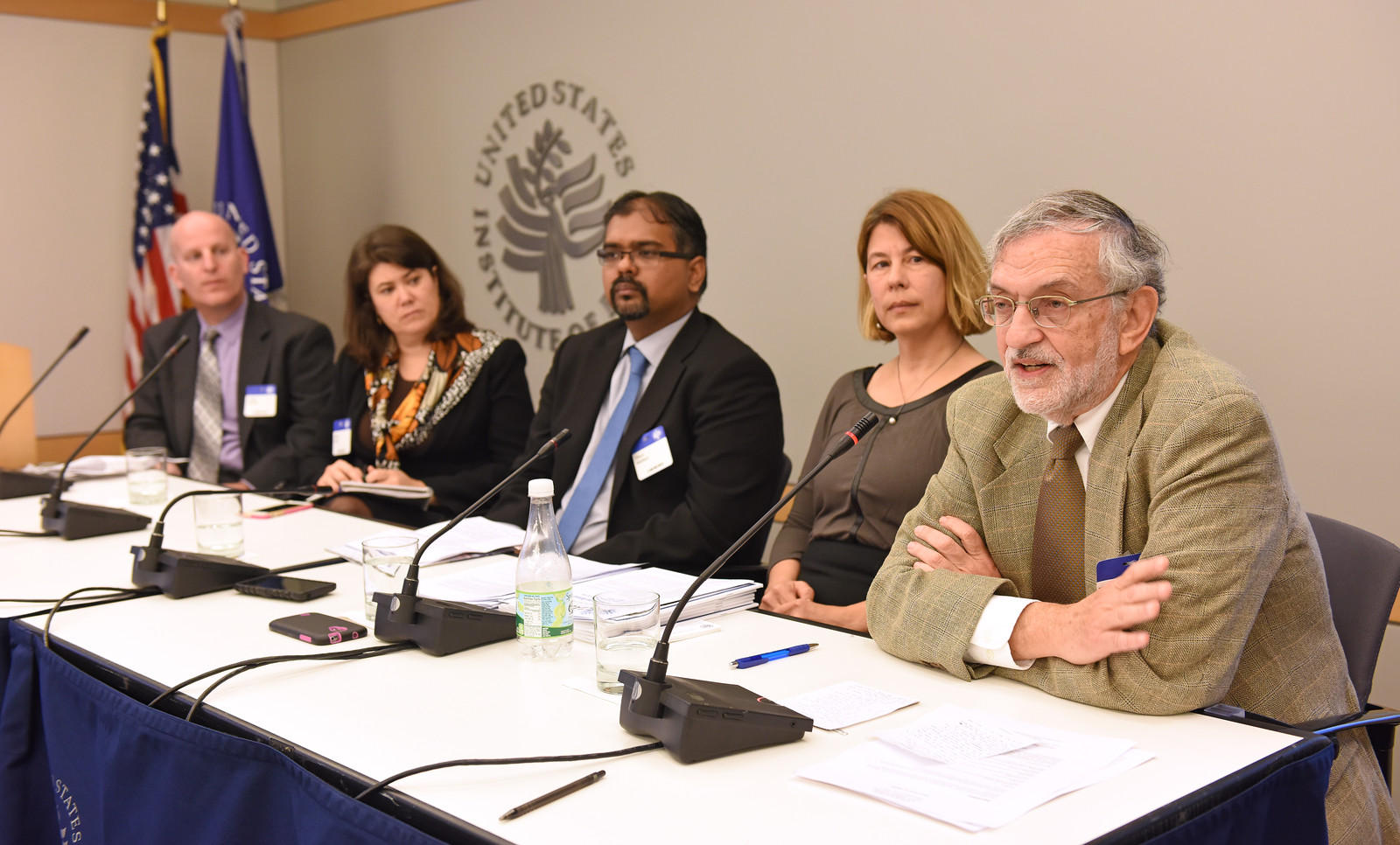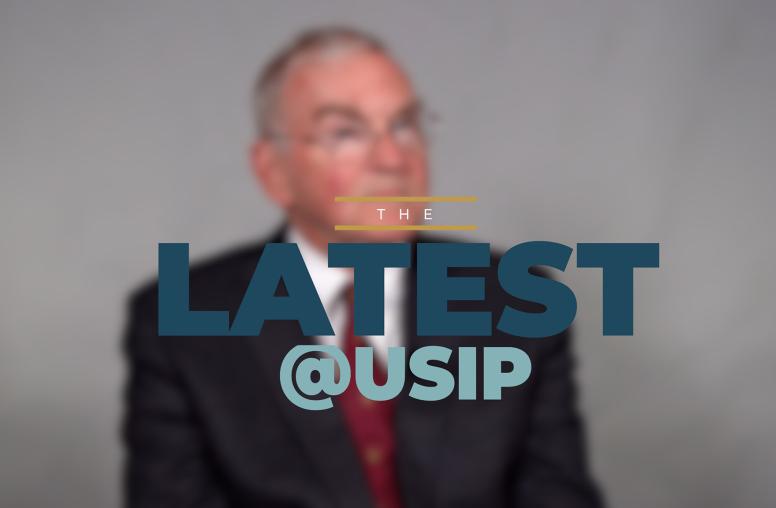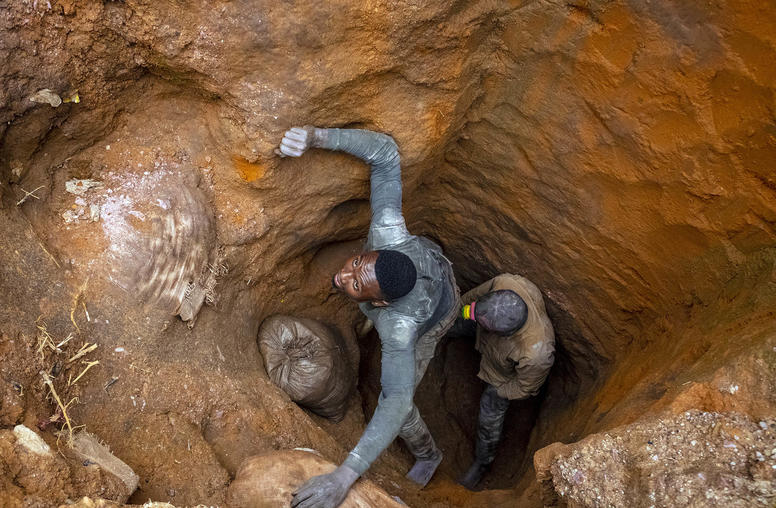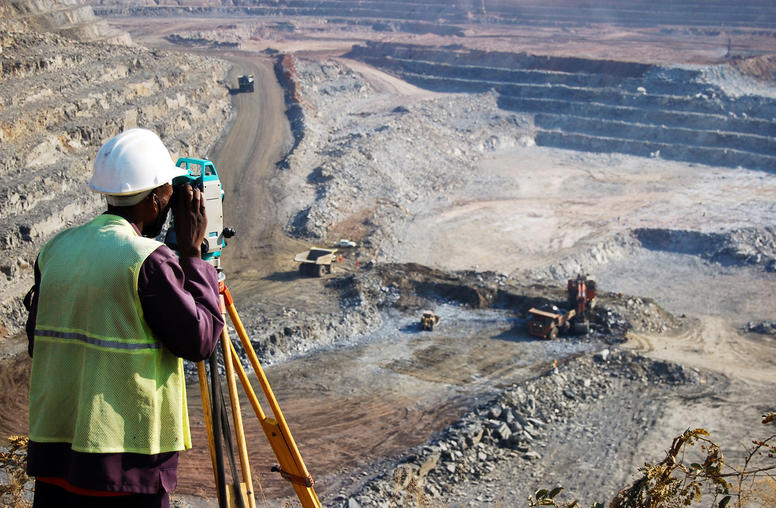Lasting Change: What Does it Take to Build Sustainable Peacebuilding?
Peacebuilding programs too often can secure funding only for relatively short-term projects, even though successful efforts require a long-term commitment at all levels of society. Donors, too, increasingly emphasize sustainability and lasting impact. On November 10, the Conflict Prevention and Resolution Forum with Search for Common Ground hosted a forum at the U.S. Institute of Peace, where leading practitioners and scholars discussed how to achieve sustainability in a competitive funding environment.

The relatively short-term nature of funding provided by most donor organizations can be a major challenge to those in the field of peacebuilding, as pressure grows to create sustainable programs. In practice, there is little determination of exactly what constitutes sustainability or how to achieve it in a competitive funding environment.
The panelists focused on developing a long-term vision and approach to build sustainable programs and institutions. They discussed topics ranging from funding peacebuilding activities at the community level to working with private and public donors to maximize the impact of peacebuilding. Continue the conversation on Twitter with #CPRF.
Since 1999, the Conflict Prevention and Resolution Forum has provided a monthly platform in Washington for highlighting innovative and constructive methods of conflict resolution. The forum aims to (1) provide information from a wide variety of perspectives; (2) explore possible solutions to complex conflicts; and (3) provide a secure venue for stakeholders from various disciplines to engage in cross-sector and multi-track problem-solving. The forum is traditionally hosted at Johns Hopkins University’s Nitze School of Advanced International Studies (SAIS) and is organized by the Conflict Management Program in conjunction with Search for Common Ground.
The forum is co-sponsored by a consortium of organizations that specialize in conflict resolution and/or public policy formulation: Search For Common Ground; the Alliance for Peacebuilding: American University’s International Peace and Conflict Resolution Program; George Mason University’s School for Conflict Analysis and Resolution; Georgetown University’s Conflict Resolution Program; Johns Hopkins University’s Nitze School of Advanced International Studies’ Conflict Management Program; Partners for Democratic Change; the United States Institute of Peace; and the Woodrow Wilson International Center for Scholars.
Participants
Ambassador Ken Yalowitz
Director, Conflict Resolution Program, Georgetown University
Julia Roig
President, Partners Global (Formerly Partners for Democratic Change)
Lauren Van Metre
Acting Vice President, Applied Research on Conflict, USIP
Theo Sitther
Legislative Secretary for Peacebuilding Policy, Friends Committee on National Legislation
Craig Zelizer, Moderator
Associate Director, Conflict Resolution Program, Georgetown University
Jeff Helsing, Introductory Remarks
Acting Vice President, Academy for International Conflict Management and Peacebuilding, USIP



